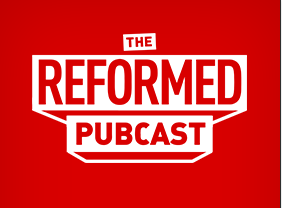There are a couple of expressions that we use, in prayer, almost without thinking. One of them is the word “Amen.” This little term is more important than we might think. In at least one place in Scripture it is used as . . . Continue reading →
2015 Archive
Calvin: Assurance Fills Our Sails
The seducers that had infiltrated the Galatians and corrupted the purity of the gospel…Paul stops here, and says that if we are being forced and obliged to perform this task for God and to enter into this covenant with him, Jesus Christ . . . Continue reading →
Bay Psalm Book On Uninspired Versus Inspired Songs
…must the ordinary gifts of an private man quench the Spirit still speaking to us by the extraordinary gifts of his servant David? —Preface of The Bay Psalm Book (1640) (HT: Bob Godfrey)
The Decline Of Psalmody In The Netherlands: Anabaptists, Remonstrants, And The State Church
In the Roman Catholic church the choir sings and the congregation was silent. Calvin also introduced singing by the congregation, and collected for it a bundle of Psalms of Clement Marot and Beza. He had the tunes composed by Louis Bourgois and . . . Continue reading →
Heidelcast 96: Reformation Then And Now
Confessional Reformed theology, piety, and practice does not seem to be sweeping the field in North America but it is prospering in other parts of the globe. In this episode Dan Borvan joins us to get us up to speed about the . . . Continue reading →
In Depth Of Spirituality The Psalms Excel The Hymns
The Christian Reformed Church holds it as one of its distinctive principles that the psalms are to be used in public worship as the chief manual of praise. There is divine authority for this use of the psalms, as shown by 1 . . . Continue reading →
Heidelberg 128: The Doxology
We might first associate the word doxology with the song often sung at the close of public worship services but it is, in fact, two Greek words (δόξᾰ + λογία), which was taken over into medieval Latin and thence into English in . . . Continue reading →
Office Hours: After Obergefell (pt 1)
Recently the Supreme Court of the United States issued a very significant decision widely known as Obergefell. In that 5–4 ruling, writing for the majority, Justice Kennedy argued that same-sex marriage is protected under the 14th Amendment, which was ratified after the . . . Continue reading →
But Deliver Us From The Evil One
Whoever has God for his friend will find Satan to be his enemy. He receives the name of Satan, first, because he is the adversary of God himself; and next, because he is the adversary of those whom God honors with his . . . Continue reading →
Heidelberg Catechism 127: Deliver Us From Our Deadly Spiritual Enemies
In the 19th century Karl Marx (1818–83) diagnosed our most basic problem in material terms. He prescribed a future (eschatological) solution that was entirely material. He himself said that he had turned G. W. F. Hegel’s (1770–1831) spiritual view of history and . . . Continue reading →
How Many Lamborghinis Is Gianna Worth?
For Statists The Government Is The Hero Of The Narrative
Ever since Hegel or maybe Plato, statists have been telling a story about government in which government itself is the hero in an epic struggle. —Jonah Goldberg
Remember
Heidelberg 126: Justified Sinners Pray For Forgiveness Of Sins
One of the most persistent temptations Christians face is that of turning the covenant of grace into a covenant of works. As we pray we must always be reminded that we, who trust in Jesus Christ as our substitute and Mediator, are . . . Continue reading →
Heidelberg 125: Trusting And Asking Our Father To Provide
We are often tempted to set asking and trusting against each other but, of course, it is a false choice. When a child asks his Dad for breakfast he trusts that his father can provide. It does not occur to him to . . . Continue reading →
Calvin’s Response To Being Forced To Observe Christmas
Now, I see here today more people that I am accustomed to having at the sermon. Why is that? It is Christmas day. And who told you this? You poor beasts. That is a fitting euphemism for all of you who have . . . Continue reading →
How Many Radical Muslims Are There In The World?
Heidelberg 124: Not My Will But Yours Be Done
One of the most striking moments in the gospels is our Lord’s prayer in Garden of Gethsemane (Matthew 26:36–46; Mark 14:32–42; Luke 22:39–46). For one thing, in those moments we are given compelling evidence of our Lord’s true humanity. This is not . . . Continue reading →
On The Reformed Pubcast Discussing Covenant Theology
Covenant theology is sometimes regarded and presented by American evangelicals as an idiosyncratic, mysterious, even esoteric way to read Scripture. Of course, from a historical and biblical perspective, it is nothing of the sort. Much of what the Reformed began to teach . . . Continue reading →
Grace And Consequences
I consider myself a “grace boy.” That is, all the debates that have been on-going in Presbyterian and Reformed circles over sanctification over the past few years, I side with those who emphasize the indicative (who we are by virtue of our . . . Continue reading →











